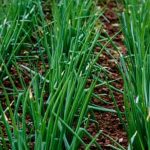As the popularity of vegetable gardening continues to rise, many gardeners are left wondering about the potential consequences of their green thumb. One particular concern that often arises is whether vegetable gardens attract rats.
Understanding the relationship between vegetable gardens and rats is crucial for gardeners to effectively manage and prevent infestations. In this article, we will explore the natural attraction of rats to vegetable gardens, factors that contribute to rat infestations, signs of rat presence in gardens, health risks associated with infestations, preventive measures to keep rats away, natural pest control methods, and tips for promoting sustainable gardening while keeping rats at bay.
Vegetable gardens are naturally attractive to rats due to several reasons. Firstly, these gardens typically provide a plentiful supply of food sources for these opportunistic creatures. With an abundance of fruits, vegetables, and seeds readily available, it is no wonder that rats find vegetable gardens irresistible. Additionally, the shelter and protection that a garden environment offers further entices them.
Various factors influence rat infestations in vegetable gardens. The location plays a significant role as gardens situated near areas with pre-existing rat populations or accessible food sources may be more prone to infestation. Furthermore, the layout and design of a garden can also impact its attractiveness to rats. Overgrown vegetation provides additional hiding spots for rodents while inadequate maintenance and cleanliness increases the likelihood of attracting them.
In order to effectively prevent rat infestations in vegetable gardens, it is important for gardeners to be able to identify signs of rat presence early on. Common indicators include droppings, gnaw marks on plants or structures, burrows or tunnels in soil or near plants’ roots, as well as sightings of rats themselves. By being vigilant and proactive in monitoring for these signs, gardeners can take action before an infestation becomes established.
The Natural Attraction of Rats to Vegetable Gardens
One reason why vegetable gardens can be attractive to rats is due to the natural elements present in these gardens. Rats are naturally drawn to areas that provide them with food, water, and shelter, all of which can be found in a vegetable garden. The abundance of vegetation and crops serves as a ready food source for rats, making gardens an appealing destination for them.
Furthermore, the warm and cozy environment created by the dense foliage of vegetable plants offers rats ideal shelter and protection from predators. With ample hiding places and nesting opportunities, rats are enticed to make vegetable gardens their homes. This natural attraction is further amplified during seasons like fall when vegetables ripen and offer a bountiful feast for these rodents.
In addition to natural elements, there are also several factors that contribute to rat infestations in vegetable gardens. The location of the garden plays a significant role in attracting pests. Gardens located near areas with high rat populations such as abandoned buildings or dumpsters are more likely to become infested. Similarly, poorly designed or maintained gardens that lack proper fencing or protective measures can create easy access points for rats.
To combat the natural attraction of rats to vegetable gardens, it is crucial for gardeners to be proactive in taking preventive measures. Implementing proper garden design techniques such as installing wire mesh fencing around the perimeter can help keep rats out. Additionally, regular maintenance practices like removing weeds and debris can eliminate potential hiding spots for rodents.
Overall, understanding the natural attraction of rats to vegetable gardens allows gardeners to take proactive steps in preventing rat infestations. By addressing factors that attract rats and implementing effective preventive measures, individuals can enjoy the benefits of their thriving vegetable gardens without unwanted rodent encounters.
Factors That Influence Rat Infestations in Vegetable Gardens
One of the essential aspects to consider when it comes to understanding the relationship between vegetable gardens and rats is identifying the factors that contribute to rat infestations in these garden spaces. Several elements can influence the attractiveness of a vegetable garden to rats, including its location, design, and maintenance. By examining these factors, gardeners can take proactive measures to prevent rat infestations and protect their crops.
Location plays a significant role in determining whether a vegetable garden will be susceptible to rat infestations. Gardens located near areas with established rat populations such as sewers or garbage dumps are more likely to attract rats seeking easily accessible food sources. Additionally, if neighboring properties have unkept gardens or if there are nearby sources of water like ponds or streams, this can also increase the risk of rat infestation.
Another factor that contributes to rat attraction is the design of the vegetable garden itself. Gardens with overgrown vegetation or dense foliage provide ideal hiding spots for rats, making it easier for them to access and feed on crops undisturbed. Poorly constructed fences or gaps in existing barriers can also facilitate rats’ entry into the garden space.
The level of maintenance in a vegetable garden significantly impacts its vulnerability to rat infestations. Neglected gardens with fallen fruits and vegetables on the ground serve as readily available food sources for rats. Regularly harvesting ripe produce, promptly disposing of waste, and maintaining cleanliness are crucial steps in deterring rats from considering a vegetable garden as an attractive habitat.
By understanding these different factors that influence rat infestations in vegetable gardens, gardeners can take proactive measures to mitigate the risk. Evaluating the location of their gardens before planting is essential, as well as implementing effective design strategies like maintaining clear boundaries and eliminating hiding spots for rodents.
Additionally, practicing good hygiene and regularly maintaining the garden’s cleanliness will help discourage rats from being attracted to the area. By addressing these influencing factors head-on, gardeners can create a garden space that is less enticing to rats and ensure the protection of their valuable crops.
Identifying Signs of Rat Presence in Vegetable Gardens
Common Signs of Rat Presence
When it comes to preventing rat infestations in your vegetable garden, one of the most crucial steps is being able to identify the signs that rats might be present. By recognizing these signs early on, you can take appropriate action to prevent further damage and keep your garden pest-free.
One common sign of rat presence in vegetable gardens is the appearance of gnaw marks on plants, fruits, or vegetables. Rats have sharp incisors that they use to chew through foliage and produce, leaving behind distinct bite marks. Additionally, rats may also leave behind small droppings that resemble dark, cylindrical pellets.
Another telltale sign is the presence of burrows or nests. Rats are notorious for digging holes and creating underground pathways, which they use as shelter and protection. Look for openings or disturbed soil near your garden beds as potential indications of rat activity.
Preventing Rat Infestations
To prevent rats from infesting your vegetable garden, it’s essential to address potential attractants and minimize their access to food sources. Here are a few preventive measures you can implement:
- Secure your compost: Rats are attracted to organic waste, so make sure to securely cover your compost bins or use rodent-proof containers. Avoid adding meat or dairy products to discourage rat interest.
- Remove fallen fruits and vegetables: Rats are drawn to areas with abundant food sources. Regularly remove any fallen fruits or vegetables from the ground as they can invite rats into your garden.
- Seal entry points: Inspect your garden area for any gaps or openings that rats could use as entry points into your garden. Close off these spaces by repairing fences or using wire mesh barriers.
- Keep your garden clean: Keeping your garden tidy and free from clutter eliminates hiding spots for rats and reduces their nesting opportunities.
Seek Professional Help
If despite your efforts, rat infestations persist in your vegetable garden, it may be necessary to seek professional help. Pest control experts have the knowledge and experience to effectively deal with rat problems and provide solutions tailored to your situation.
By promptly recognizing the signs of rat presence and implementing preventive measures, you can protect your beloved vegetable garden from these pesky pests. Stay vigilant, follow the tips mentioned above, and enjoy the abundant harvest that awaits you.
Health Risks Associated with Rat Infestations in Vegetable Gardens
One of the key concerns when it comes to rat infestations in vegetable gardens is the potential health risks that they pose. Rats are known carriers of various diseases, and their presence in a garden can pose a threat to not only the crops but also to humans who come into contact with them. It’s important for gardeners to be aware of these risks and take appropriate measures to prevent rat infestations.
Rats can transmit diseases through direct contact or through indirect means such as their urine, feces, or fleas that infest them. One of the most well-known diseases associated with rats is leptospirosis, which is caused by bacteria found in their urine. This disease can cause flu-like symptoms and lead to more severe complications if left untreated.
Another disease that rats can carry is salmonellosis, which is caused by a bacterium found in their feces. Gardeners who consume vegetables contaminated with this bacterium may experience symptoms such as diarrhea, stomach cramps, and fever. Additionally, fleas that infest rats can also transmit several diseases such as plague and murine typhus.
To prevent the spread of these diseases, it is crucial for gardeners to practice good hygiene and take preventive measures. Regular hand washing after working in the garden and before eating is essential. It’s also recommended to wear gloves while handling soil or crops that may have come into contact with rats or their droppings.
By understanding the health risks associated with rat infestations in vegetable gardens, gardeners can take appropriate steps to protect themselves and their crops. Maintaining a clean and tidy garden environment, eliminating potential rat habitats such as piles of debris or overgrown vegetation, and using deterrents like fencing can all help reduce the risk of rat infestations.
Additionally, being vigilant about any signs of rat activity such as gnaw marks on plants or droppings will allow for early detection and prompt action to prevent the spread of diseases. With proper preventive measures in place, gardeners can enjoy the benefits of a thriving vegetable garden while minimizing the risk of health issues associated with rats.
Preventive Measures to Keep Rats Away from Vegetable Gardens
Fencing
One of the most effective methods to keep rats away from vegetable gardens is by implementing proper fencing. Rats are agile and can easily enter gardens through small gaps or holes. Therefore, it is crucial to install a sturdy fence that surrounds the entire garden area.
The fence should be buried at least 12 inches deep into the ground to prevent rats from burrowing underneath it. Additionally, make sure the fence is tall enough, ideally around 4 feet high, to deter rats from climbing over it. Regularly inspect the fence for any damage or signs of rat activity and repair any issues promptly.
Traps
Using traps is another viable option for keeping rats away from vegetable gardens. Snap traps are commonly used and can be placed in strategic locations where rat activity has been observed. When setting up traps, ensure they are secured and inaccessible to children and pets. It’s essential to check the traps regularly and remove any captured rats swiftly to prevent odor issues and discourage other rats from being attracted to the area.
Maintaining Cleanliness
Maintaining cleanliness in and around the vegetable garden is crucial for minimizing rat attraction. Rats are scavengers and are more likely to settle in areas with a readily available food source. Practicing good hygiene habits such as promptly removing fallen fruits or vegetables, cleaning up spills or food debris, and properly storing compost can significantly decrease the chances of rat infestation. Regularly dispose of garbage in tightly sealed containers that rats cannot access.
In addition to these preventive measures, it is important to remove potential sources of shelter for rats such as piles of wood or debris near the garden area. By eliminating hiding spots, you decrease the appeal of your garden as a habitat for rats. Implementing these strategies will create an environment that deters rats while still allowing you to enjoy your thriving vegetable garden.
Natural Pest Control Methods for Rat Removal in Vegetable Gardens
The presence of rats in vegetable gardens can be a nuisance and pose potential health risks. While it is important to prevent and manage rat infestations, there are natural pest control methods that can be employed to effectively remove rats from vegetable gardens. These eco-friendly approaches not only help maintain a healthy garden ecosystem but also minimize harm to the environment.
One natural pest control method for rat removal in vegetable gardens is the use of essential oils. Certain essential oils, such as peppermint and eucalyptus oil, have been found to repel rats due to their strong scent. Placing cotton balls soaked in these oils around the garden or using spray bottles with diluted essential oils creates an unpleasant environment for rats, deterring them from entering the garden.
Another effective natural method for controlling rats in vegetable gardens is the use of plant barriers. Certain plants act as deterrents for rats due to their strong smell or spiky leaves, making it difficult for the rodents to access the garden. Mint, lavender, and rosemary are examples of plants that rats dislike and can be strategically planted around the perimeter of the garden as a natural barrier.
Companion planting is another technique that can help control rat populations in vegetable gardens. By planting certain crops together, you can take advantage of their mutual benefits while deterring pests like rats. For example, marigolds are known to repel rodents like rats due to their pungent smell when planted near susceptible crops.
Using these natural pest control methods not only helps in rat removal from vegetable gardens but also promotes sustainability and environmental consciousness in gardening practices. By avoiding harmful chemicals and opting for eco-friendly approaches, you can create a thriving garden ecosystem while keeping unwanted pests at bay.
| Natural Pest Control Methods | Description |
|---|---|
| Essential Oils | Peppermint and eucalyptus oil can be used to repel rats due to their strong scent. Placing cotton balls soaked in these oils or using spray bottles with diluted essential oils creates an unpleasant environment for rats, deterring them from entering the garden. |
| Plant Barriers | Certain plants, such as mint, lavender, and rosemary, can act as natural barriers against rats. Their strong smell or spiky leaves make it difficult for rodents to access the garden. |
| Companion Planting | By planting certain crops together, such as marigolds near susceptible crops, you can take advantage of their mutual benefits while deterring pests like rats due to their pungent smell. |
Promoting Sustainable Vegetable Gardening without Attracting Rats
There are several effective strategies and techniques that can be implemented to promote sustainable vegetable gardening without attracting rats. One important aspect to consider is the maintenance of cleanliness in the garden.
Rats are attracted to areas with abundant food sources and shelter, so it is crucial to keep the garden clean and tidy, minimizing potential food and nesting opportunities for them. This can be achieved by regularly removing fallen fruits and vegetables from the ground, storing harvested produce properly in sealed containers, and keeping compost bins tightly closed.
Another preventive measure is the use of physical barriers such as fencing. Fencing can create a barrier that makes it difficult for rats to enter the garden. The fence should be buried at least 6 inches underground and made of materials that cannot be easily chewed or climbed. Additionally, removing any items around the garden that could serve as bridges or pathways for rats, such as stacked firewood or dense vegetation, can also prevent their access.
Traps can also be an effective method for controlling rat populations in vegetable gardens. There are various types of traps available, such as snap traps and live traps. Snap traps should be placed strategically near areas where rat activity has been observed, while live traps allow for capture and release elsewhere. It’s important to check traps regularly and dispose of trapped rats according to local regulations.
In addition to these methods, companion planting can also help deter rats from vegetable gardens. Certain plants have natural repellent properties that repel rodents due to their strong scent or taste. For example, planting marigolds or mint around the perimeter of the garden can deter rats from entering due to their strong smell.
Overall, it is important to strike a balance between sustainable vegetable gardening practices and preventing rat infestations. By implementing these strategies – maintaining cleanliness, using physical barriers like fencing, employing traps when necessary, and incorporating companion planting – gardeners can enjoy a thriving vegetable garden while deterring rats and promoting a healthier gardening environment.
| Preventive Measures | Effectiveness |
|---|---|
| Maintaining Cleanliness | Highly effective in reducing rat attraction to vegetable gardens |
| Using Physical Barriers (Fencing) | Creates a strong deterrent for rats and makes it difficult for them to access the garden |
| Traps | An effective method for controlling rat populations when used strategically and checked regularly |
| Companion Planting | Natural repellent properties of certain plants can help deter rats from entering the garden |
Conclusion
In conclusion, it is clear that vegetable gardens have the potential to attract rats. The natural elements and abundant food sources in vegetable gardens make them an enticing environment for rats. However, there are several factors that can contribute to rat infestations in vegetable gardens, including location, garden design, and maintenance.
To prevent rat infestations, it is important for gardeners to be aware of the signs of rat presence in their gardens. By learning what to look out for and taking proactive measures, such as maintaining cleanliness and regularly inspecting the garden for signs of rats, gardeners can minimize the risk of infestation.
Rat infestations in vegetable gardens pose health risks to humans. Rats can transmit diseases through their droppings and urine, which can contaminate the vegetables grown in the garden. It is crucial for gardeners to understand these health risks and take steps to prevent them by implementing effective strategies and techniques to keep rats away.
While preventing rat infestations requires effort and vigilance, it is still possible to enjoy the benefits of vegetable gardening without attracting rats. By following sustainable gardening practices such as proper fencing, traps, and maintaining cleanliness, gardeners can create a harmonious balance between enjoying their vegetable gardens and preventing rat infestations.
Frequently Asked Questions
Do vegetable plants attract rodents?
While vegetable plants themselves do not attract rodents, certain factors associated with vegetable gardens can make them attractive to rodents. Rodents are typically attracted to areas that provide them with food, water, and shelter, so if a vegetable garden offers these conditions, it may draw in rodents.
Factors like fallen fruits or vegetables on the ground, improper storage of harvested produce, or compost piles that contain organic matter can all create an enticing environment for rodents. Additionally, dense vegetation can provide hiding spots and harborage for these pests.
Are rats attracted to vegetables?
Yes, rats can indeed be attracted to vegetables. Rats are opportunistic feeders and will consume a variety of foods depending on what is available.
While they may not specifically target vegetables as their primary food source, they will certainly take advantage of any opportunity to secure a meal. If there’s an abundance of easily accessible vegetables in a garden or if the conditions mentioned earlier exist, rats may be more likely to visit and feast on the produce.
What keeps rats away from vegetable garden?
To keep rats away from a vegetable garden, it is important to focus on eliminating the factors that attract them in the first place. Start by practicing good garden hygiene by promptly removing fallen or rotting fruits and vegetables from the ground and properly storing harvested produce in rodent-proof containers or areas. Avoid creating ideal hiding places for rats by keeping vegetation well-trimmed and providing open spaces around plants.
Additionally, consider using physical barriers like fencing or netting to prevent rats from accessing your vegetable garden altogether. Keeping your garden clean and free of debris while implementing preventive measures will decrease the likelihood of attracting rats to your precious vegetables. Regular monitoring and quick action at the first sign of rodent activity are also crucial for effective pest control management in your garden space.

If you’re looking to get into vegetable gardening, or are just looking for some tips on how to make your current garden better, then you’ve come to the right place! My name is Ethel and I have been gardening for years. In this blog, I’m going to share with you some of my best tips on how to create a successful vegetable garden.





